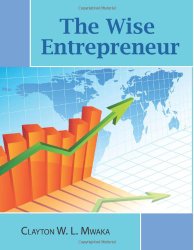By the way, have you ever heard about the aspect of succession planning as an entrepreneur? Does it matter to you at all? Why should it matter to you anyway? Basically, succession planning relates to your plans as an entrepreneur – for your enterprise, to identify people and develop them for the future of your enterprise. Of course you are not going to be there forever in that business you possibly single-handedly started, are you? Even if you have developed a team, that team will one day be dismantled and yet you need your business to proceed into the future. Now, while many medium and large scale enterprises have in place succession plans, most small enterprise do not bother much. But don’t you think it is vital to plan for continuity in your enterprise – whether it’s a small, medium or large one? The following issues are important for you to recognize as an entrepreneur.
- Succession planning is important for any entity – entrepreneurial or not. You cannot do without succession planning if you desire to build a great enterprise that can stand the test of time. Don’ you think so? Unless you just desire to remain small and average, you need succession planning. You can choose to run a small enterprise, and wind it up at some stage. If however you are considering long-term continuity of your enterprise, or handing over your enterprise to your generation or to the public, you cannot avoid succession planning.
- You need to start early with succession planning, and also make it a continuous effort in your enterprise. Many entrepreneurs tend to think that they can focus on this aspect at the last when they are retiring from their enterprise. Isn’t this true? Similarly, some medium and large enterprises also lack preparation and always appear disorganized in this aspect. In such cases the departure of a key leader can cause disruption in business for a while. Haven’t you seen some enterprises experience this? Early planning and preparation help avoid a lot of complications that may result. It is never too early to start succession planning if your focus in long-termed, no matter the size of the enterprise.
- The approach to succession planning differs with factors such as the nature, size of the enterprise etc. I believe you can name other factors, can’t you? If your enterprise is large enough to have a couple of managers, then those become a starting point for succession planning. For large enterprises this becomes part of the strategy. Such large enterprises always have a pool of human capital at senior level that make succession issues easier to handle – with the main challenge only being selecting the best from a couple of potential ones. If you are in a small family enterprise for example, with hardly any managers, then your approach may be slightly different. You may consider developing some family members for that role. These are people who can step in after you retire. They may be your children or some other relatives. You however need to ensure that they are competent and skilled enough to take on the challenging roles otherwise the enterprise will suffer retardation. Don’t you agree with me on this aspect?
- Various guidelines to succession planning exist and you need to take them into account. First and foremost it should be part of your strategy. You need to think long-term. You need to be realistic at the same time. It’s vital to identify potential successors and build them over time, while monitoring their development over the years. It is experiences that develop people and this implies that you need to expose your potential successors to the right and adequate experiences. Responsibilities, skills, competencies etc matter very much. High performers who have what it takes to succeed could be considered for development. The second-in-command approach is also an option. Here you identify someone who acts as your second-in-command. You then gradually handover roles to this person so that eventually the person can fully take responsibility.
Good succession planning not only helps in the above scenarios but also supports enterprise growth and expansion. Handling promotions and filling in gaps also become easy. It also enables your enterprise to take advantage of opportunities that may arise. Your approach to succession, with the accompanying investments in staffs, additionally motivates your staffs and impacts positively on productivity. Don’t all these add value to your enterprise? Succession planning is not just for the CEO position only. Potential candidates may be internal or external and your enterprise should not limit itself only to insiders. You also have to consider the dimensions of management, leadership and enterprise ownership while looking at succession planning. Don’t you think so?
Till then,
The Wise Entrepreneur







